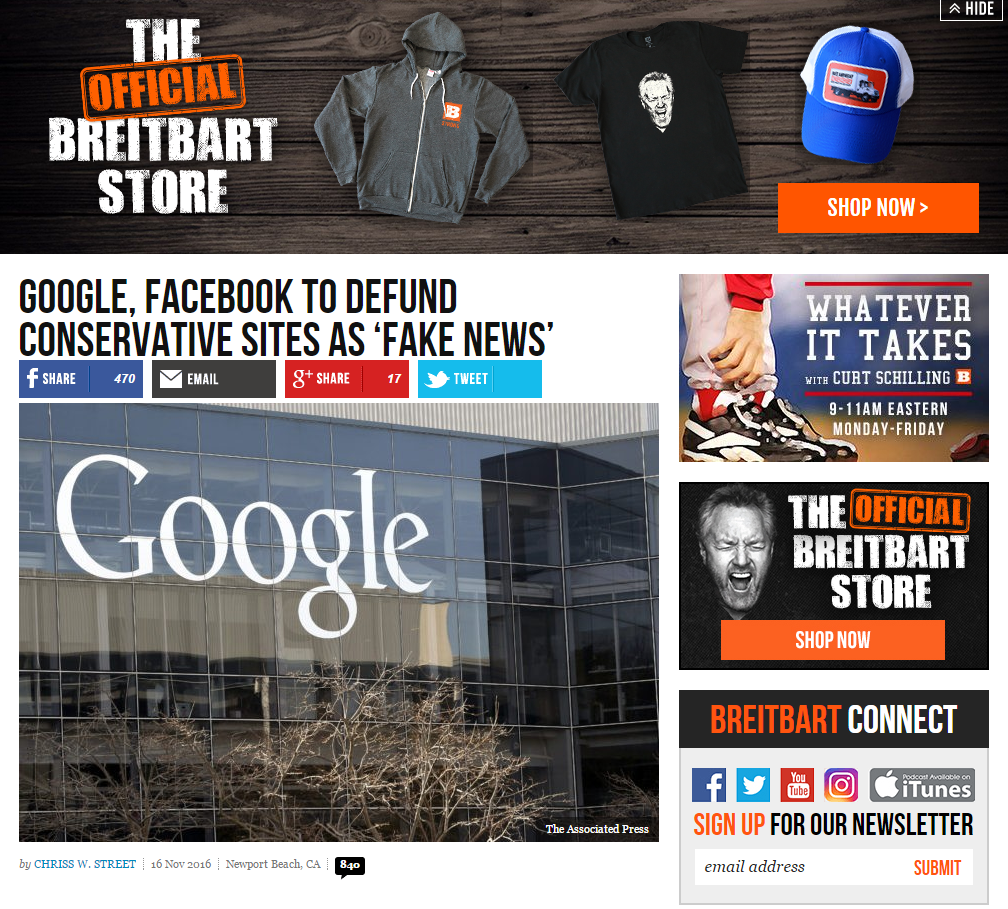In the wake of the US Presidential election, and the popularity of the term “post truth”, Google has now announced that it shall be cutting off the revenue streams of fake new sites by banning them from its ad network.
Partisan actors have been accused of unfairly influencing the outcome of the recent election, which saw Republican candidate Donald Trump beat off competition from Hillary Clinton.
A spokesperson for Google told Reuters, “moving forward, we will restrict ad serving on pages that misrepresent, misstate, or conceal information about the publisher, the publisher’s content, or the primary purpose of the web property.”
Previously the search engine’s AdSense programme prevented sites that promoted violent videos, pornography, and hate speech from being advertised to users.
During the day of the election, critics said that the company gave too much prominence to false stories and that the top result on a Google search for “final election vote count 2016” wrongly stated that Trump was ahead of Clinton in the popular vote.
Meanwhile Facebook has also stated that it has updated its advertising policies to spell out a ban on deceptive and misleading content, which applies to fake news.
In days following the election Chief Executive Mark Zuckerberg twice had to insist that the site had no role whatsoever in influencing the way in which people voted.
Both Google and Facebook were punished with severe backlashes in the days after the election, forcing the latter to state that, “we do not integrate or display ads in apps or sites containing content that is illegal, misleading or deceptive, which includes fake news.”
The social platform added that it will continue to vet publishers to ensure compliance.
In fact, the term “post truth”, has been made Oxford Dictionaries’ Word of the Year for 2016 and means, “relating to or denoting circumstances in which objective facts are less influential in shaping public opinion than appeals to emotion and personal belief.”
Casper Grathwohl said that the term could become “one of the defining words of our time” before continuing:
“Fuelled by the rise of social media as a news source and a growing distrust of facts offered up by the establishment, post-truth as a concept has been finding its linguistic footing for some time.
“We first saw the frequency really spike this year in June with buzz over the Brexit vote and again in July when Donald Trump secured the Republican presidential nomination.”
As of yet it is unclear just how effective either policy will be and it is not clear whether satire sites will be affected by either change.


